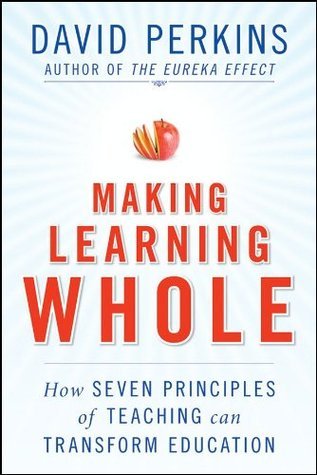What do you think?
Rate this book


David Perkins, a noted authority on teaching and learning and co-director of Harvard's Project Zero, introduces a practical and research-based framework for teaching. He describes how teaching any subject at any level can be made more effective if students are introduced to the "whole game," rather than isolated pieces of a discipline. Perkins explains how learning academic subjects should be approached like learning baseball or any game, and he demonstrates this with seven principles for making learning whole: from making the game worth playing (emphasizing the importance of motivation to sustained learning), to working on the hard parts (the importance of thoughtful practice), to learning how to learn (developing self-managed learners).
Vividly explains how to organize learning in ways that allow people to do important things with what they know Offers guidelines for transforming education to prepare our youth for success in a rapidly changing world Filled with real-world, illustrative examples of the seven principlesAt the end of each chapter, Perkins includes "Wonders of Learning," a summary of the key ideas.
276 pages, Kindle Edition
First published December 10, 2008